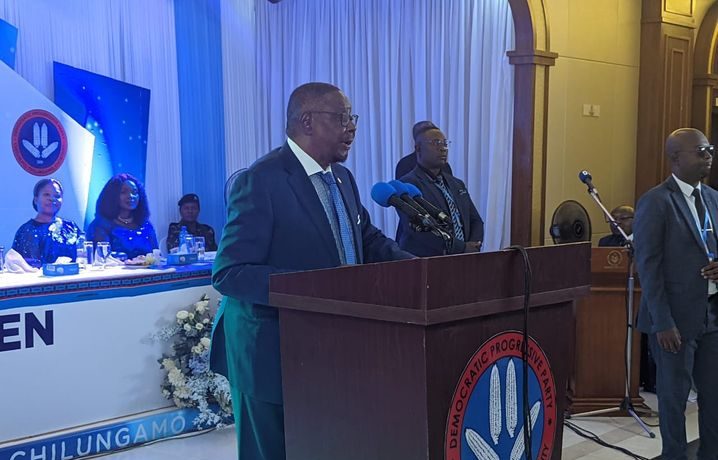As Malawi inches closer to the 2025 presidential elections, former President Peter Mutharika who is bidding for an election has baffled the public with hollow diagnosis and proposed prescription for Malawi’s economy. Mutharika communicated his vision at a Blue Night fundraising event that his political party conducted in Blantyre yesterday.
At the heart of his communicated agenda appears the relocation of key government offices back to Blantyre, a move he characterizes as essential to reversing the supposed economic harm inflicted by the current administration’s decisions. However, upon closer examination, it becomes evident that Mutharika’s vision is less about genuine economic reform and more about an outdated nostalgia for a bygone era.
Mutharika’s assertion that bringing back the headquarters of institutions like the Malawi Communications Regulatory Authority and the Malawi Housing Corporation to Blantyre will remedy the nation’s economic woes is perplexing. Chakwera has articulated how relocation of government institutions’ headquarters to the capital city are intended to enhance administrative efficiency and improve service delivery. Emphasizing a more centralized approach enables government functions to be streamlined, ostensibly benefitting all Malawians regardless of their geographical location.
Mutharika, in his nostalgic yearning for Blantyre’s historical prominence, does not provide tangible evidence of how this proposed shift would stimulate economic growth or create jobs. Rather, his focus on relocation seems to reflect a prioritization of political symbolism over substantive economic strategy. Shire Times political commentator, Joseph Masina, has ridiculed Mutharika’s views highlighting that “such superficial changes should hardly be the centerpiece of any presidential campaign”.
Equally concerning is the dissonance between Mutharika’s present-day rhetoric and his party’s history of governance. The Democratic Progressive Party (DPP), under Mutharika’s previous administration, notoriously engaged in activities that reflected a deep-seated culture of impunity and disregard for the rule of law. The recent Blue Night fundraising event—tainted by past scandals involving coerced donations from state-owned enterprises—only serves to underscore the malfeasance that the DPP fostered during its tenure.
The horrific legacy of the DPP includes not merely damaging economic policies but also a blatant contempt for judicial authority, as evidenced by its continued refusal to comply with a court order demanding repayment of illicit funds obtained under dubious circumstances.
This history should not be easily forgotten by the Malawian electorate. For a party that has previously disregarded legal mandates and wielded state resources for partisan gain, one must question the sincerity of Mutharika’s claims that he will prioritize economic recovery. His vision appears to lack depth and insight, focusing instead on empty gestures that fail to address the complex realities facing Malawians today.
The economic rejuvenation that Malawians desperately need will not come from relocating government offices back to Blantyre or nostalgic appeals to a past administration. It demands innovative policies that address the systemic issues at play, including job creation, infrastructure development, and sustaining agricultural productivity, areas which the current administration appears to not understand but also making impressive strides in their implementation. True leaders are measured not only by their promises but by their ability to connect their policy priorities with actionable solutions that serve the public good.
As the 2025 elections draw near, voters must critically evaluate Mutharika’s hollow proposals. A return to leadership marked by impunity and misguided priorities poses a dangerous gamble for a nation already grappling with severe economic challenges. To genuinely uplift Malawi’s economy, it is essential that the electorate supports a future grounded in accountability, transparency, and the promotion of sustainable economic growth—values sorely lacking in Mutharika’s vision.













